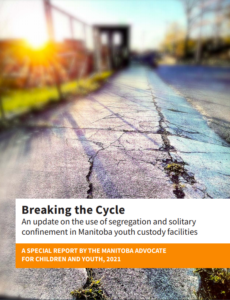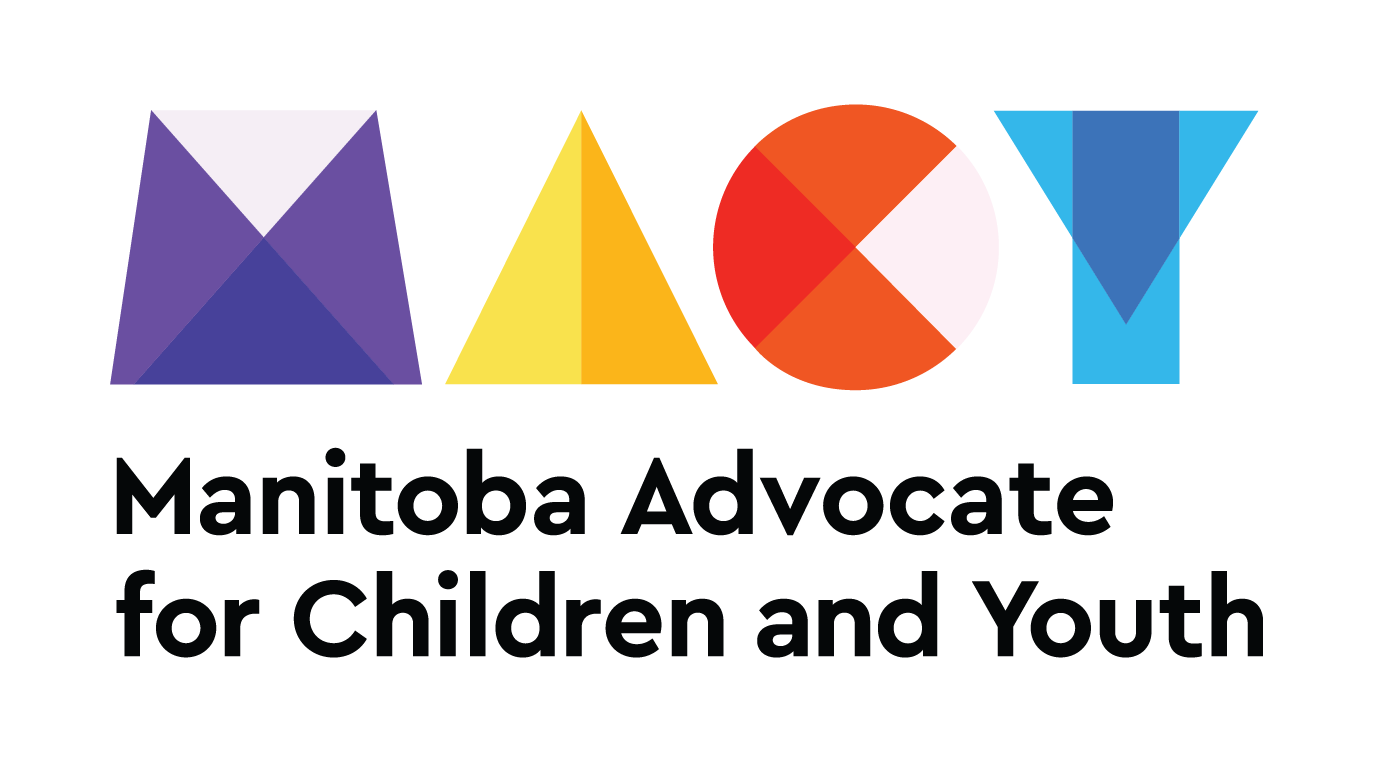BREAKING THE CYCLE: AN UPDATE ON THE USE OF SEGREGATION AND SOLITARY CONFINEMENT IN MANITOBA YOUTH CUSTODY FACILITIES

 Since our 2019 report, Learning from Nelson Mandela, the Manitoba Advocate has closely monitored the use of segregation and solitary confinement in Manitoba youth custody facilities. This special report found that solitary confinement continues.
Since our 2019 report, Learning from Nelson Mandela, the Manitoba Advocate has closely monitored the use of segregation and solitary confinement in Manitoba youth custody facilities. This special report found that solitary confinement continues.
We found that in 2020, a higher proportion of youth in custody were subjected to solitary confinement (1-14 days at a time) and prolonged solitary confinement (15 days and longer at a time) and for longer periods of time than in 2019. Higher rates of segregation reflect the additional COVID-19 pandemic protocols that require all youth to be isolated for 14 days upon admission.
Concerningly, conditions of segregation are similar whether youth are being isolated due to safety concerns or because of public health measures. Our analysis details that most youth segregated were identified as male and as Indigenous. More than sixty per cent had known mental health challenges. This report highlights the voices of youth who experienced segregation and the experiences of senior-level staff at Manitoba Justice, all of who say more mental health and cultural supports are needed inside youth custody facilities. The Manitoba Advocate again calls for an end to solitary confinement of youth over 24 hours, changes in the law to further restrict segregation under 24 hours, and for investments in trauma-informed and culturally-appropriate care for youth in custody.
